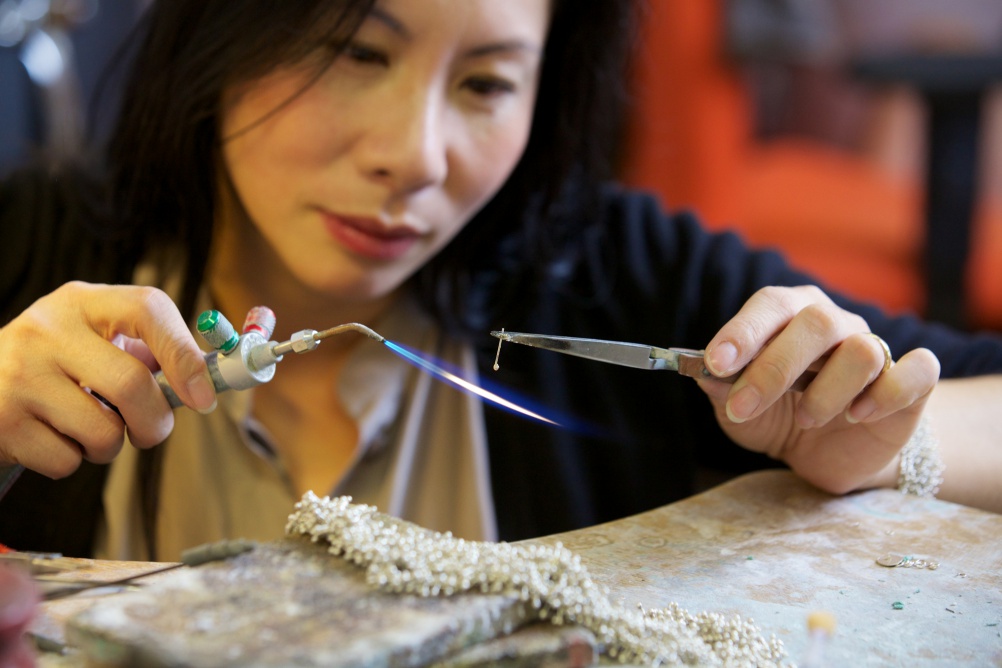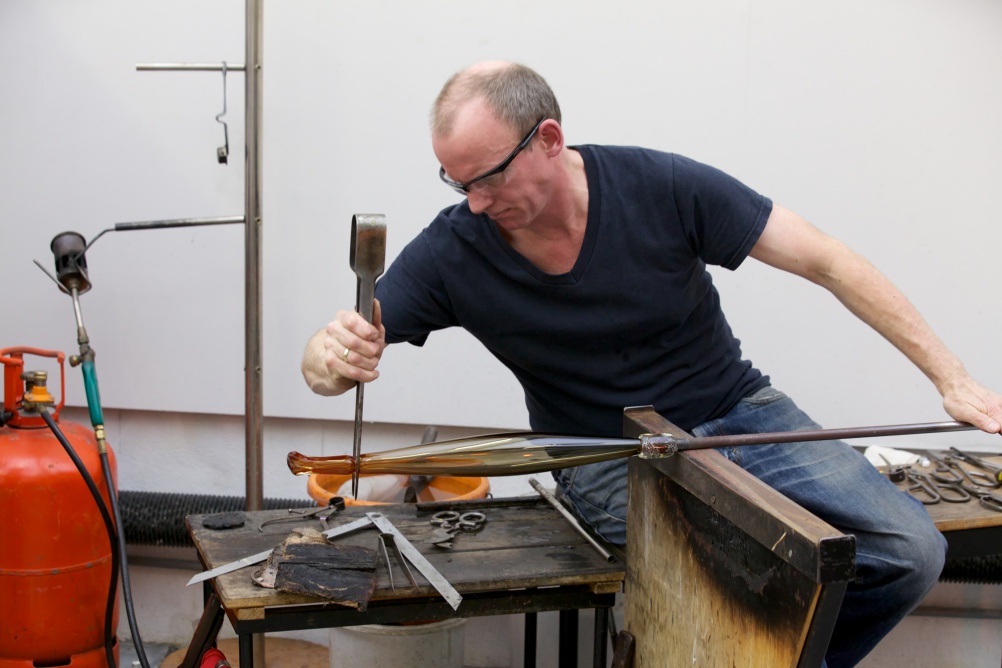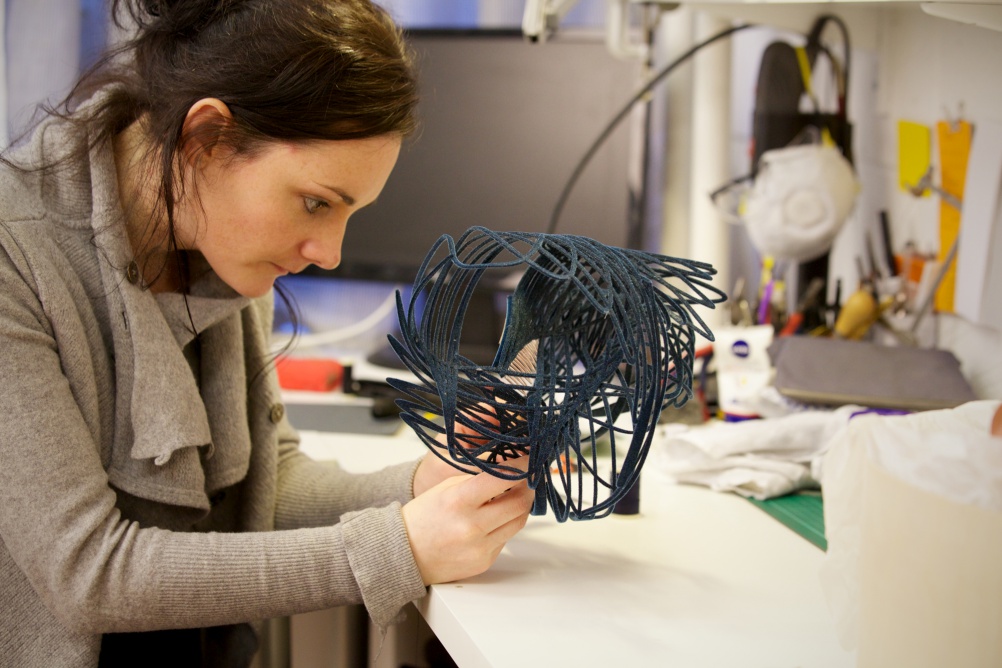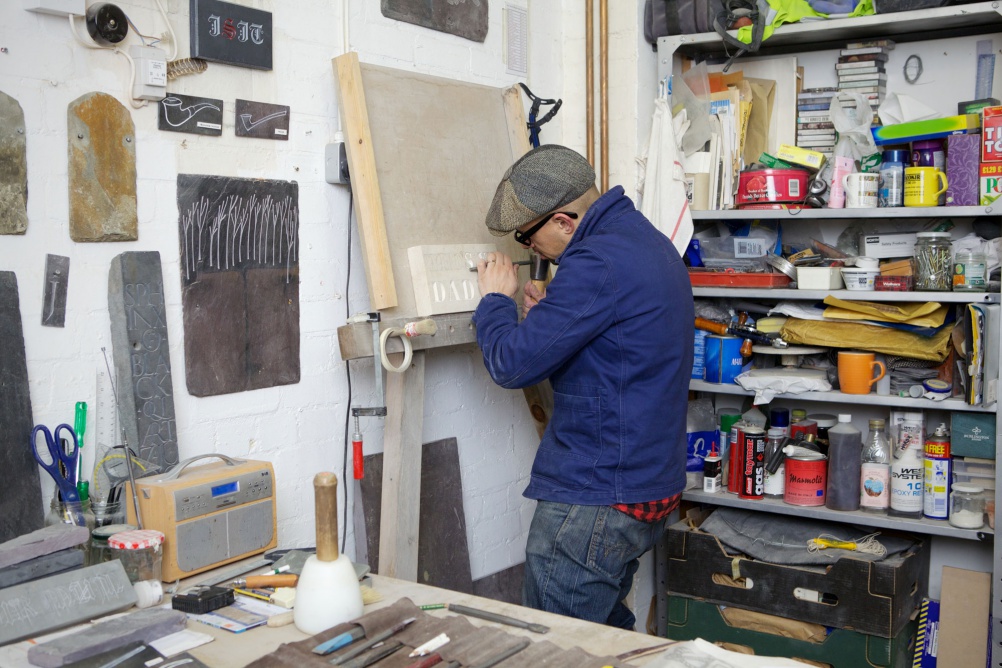Craft is finally on the agenda, but how can we keep it there?
Crafts Council executive director Rosy Greenlees says that while an interest in craft is on the rise – as shown by the new London Craft Week – issues around education mean the sector remains under threat.

Craft seems to be having a moment – and while we here at the Crafts Council has been striving for this to happen for years it genuinely feels like the beginning of a time in which crafts stand squarely alongside other creative fields.
We all know the extraordinary statistics about the creative industries and their contribution to the UK economy. Craft more than plays its part with 44,000 makers generating £746 million each year and, more broadly, 150,000 employees generating £3.4 billion each year by bringing craft skills to the wider economy and industries.
Whatever the outcome of this week’s General Election, one thing that has shifted significantly since 2010 is that the major parties are all taking us more seriously. At the last election the creative industries had a line in the major manifestos, this time around it’s whole paragraphs. And gratifyingly the political parties are starting to realise it’s not just about the economy. Yes it brings in the money, but engagement in the arts in many guises creates happier and healthier citizens. As Matthew B. Crawford laid out his book The Case for Working with Your Hands, the wellbeing that comes from skilled manual work is a rewarding path to successful living.
This week’s London Craft Week may on the surface appear to be about “things”, but what its programme acknowledges is that people want to see is a glimpse into a secret world – that of the maker’s studio, a place where new technologies and tools that have remained unchanged for centuries sit side by side. The BBC is getting in on the act too, with a series of beautifully-shot films showing the making of a glass jug, a knife and a Windsor Chair all aired as part of BBC Four Goes Slow this week. In addition to that it’s launching the Great British Pottery Throw Down this autumn.
All of this demonstrates the public interest in craft. Authentic, real, tactile, there’s no quick shortcut to learning a craft – you can’t get there quickly. Richard Sennett’s oft-quoted theory that it takes 10,000 hours to learn a craft skill is a conservative estimate in our eyes. People are turning to things with genuine provenance, unconvinced by global brands cynically employing the rhetoric of craft to boost sales with “artisanal” and “hand-crafted” being attributed to just about anything you can imagine.
And the craft sector is getting better at sharing what it does and creating events where the public can have an insight into the world of the maker. It’s worth noting that you can now go to large annual events around ceramics, glass and textiles with the British Ceramics Biennial, in Stoke-on-Trent from September to November, the British Glass Biennale at the Ruskin Glass Centre from 28 May to 28 June and the SELECT festival which focuses on textiles, happening right now in Stroud.
This all sounds like good news and it is – but all of this is in jeopardy as craft in education is becoming increasingly reduced. Our Studying Craft research in 2014 revealed that participation in craft-related GCSEs has dropped by 25 per cent in the last five years. This comes when elsewhere around the globe investment in creative education and making is rising.
An education in craft not only produces the makers of the future but develops creativity, inventiveness, problem-solving and practical intelligence that extend far beyond craft to produce innovative and successful future engineers, doctors, designers and technologists. It’s why the craft sector launched Our Future is in the Making: An Education Manifesto for Craft and Making last autumn. We need to ensure craft continues to have its moment.



Rosy Greenlees is executive director of the Crafts Council.
COLLECT: the international art fair for contemporary objects is at the Saatchi Gallery from 8-11 May and is the flagship event of London Craft Week, which takes place from 6-11 May.
All images by Sophie Mutevelian.
-
Post a comment




